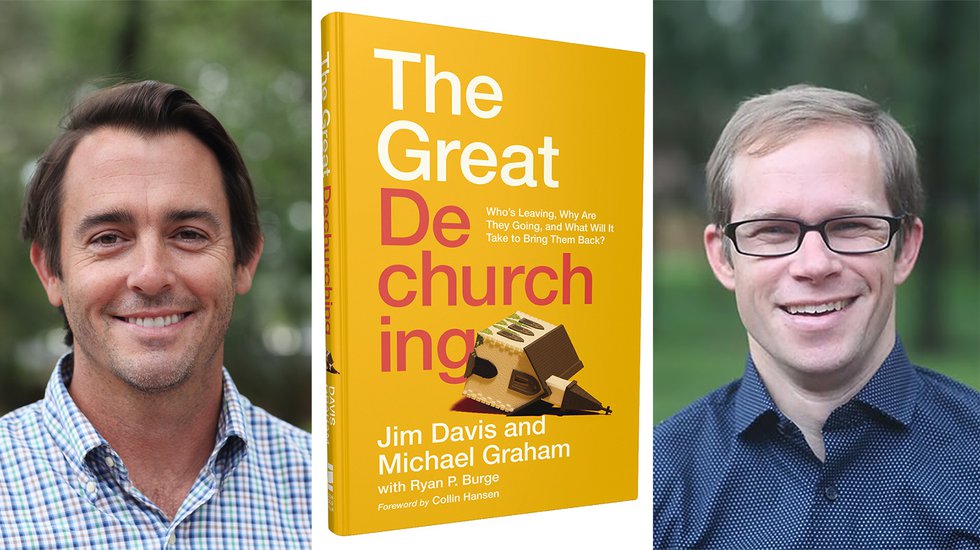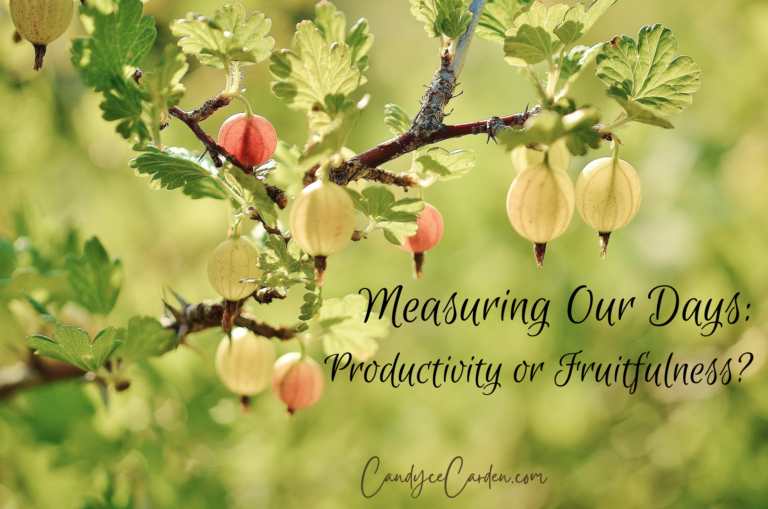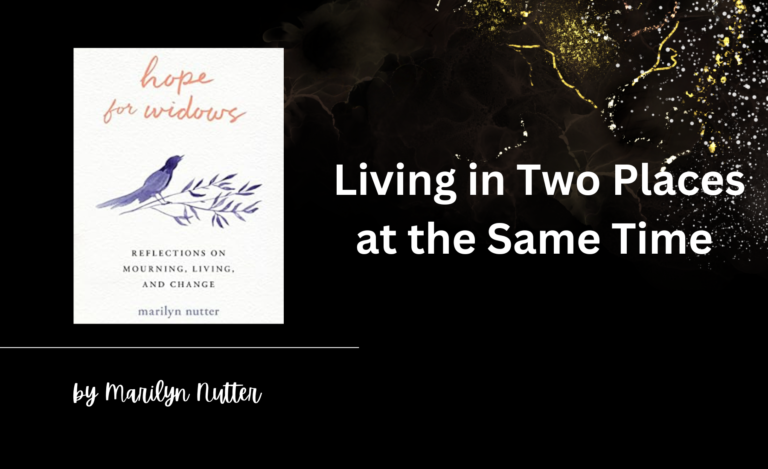The Great Dechurching – A Book Review

by Candyce Carden
Chances are, you’ve noticed a drop-off in church attendance over the past twenty years or so. I certainly have. And it’s concerning. What is going on? The newly published book, The Great Dechurching – Who’s Leaving, Why Are They Going, and What Will It Take to Bring Them Back? responds to this question.
Jim Davis and Michael Graham spent months collecting and examining data regarding the exodus from American churches. The Great Dechurching – Who’s Leaving, Why Are They Going, and What Will It Take to Bring Them Back? is the result of their work.
The researchers discovered that “America is in the midst of the largest and fastest religious shift ever.” Evidence shows that millions of former regular church goers have decided they don’t want to attend church anymore. Davis and Graham refer to them as the “dechurched.”
The book documents some startling facts. For the first time in the eight decades that Gallup has tracked American religious membership, more adults in the United States don’t attend church than attend church. That totals about 40 million adults in all. The authors project the number of the dechurched will soon exceed the number of the unchurched, those who never attended church at all.
Over the past 25 year more people have left the church than all the new people who became Christians from the First Great Awakening, Second Great Awakening, and the Billy Graham crusades combined.
The authors point to three contributing factors during this timeframe:
- The Cold War
- The fallout from an increasingly polarized Religious Right
- The influence of the Internet
Davis and Graham detail the evidence and rationale behind these three factors and assert that the “erosion of the religious foundation…will have widespread reverberations. The greatest concern is that many fewer people will have the opportunity to organically hear the gospel in local churches on a given Sunday morning.”
Disheartening words to be sure, but keep reading. The study also offers hope.
Profiles of the Dechurched
The data revealed the dechurched consists of five main categories. Each group is briefly introduced below.
Group 1: Cultural Christians
Cultural Christians represent 52 percent of dechurched evangelicals. Church was a priority in their families as they grew up. Yet, this group has the lowest understanding of Christian doctrine. Few show evidence of actually being believers. The reasons provided for church non-attendance varied widely, but most of them stopped practicing their faith from age 18-25.
There’s good news here, however. Over 50 percent of cultural Christians are open to a return to church.
Group 2: Dechurched Mainstream Evangelicals
This group, unlike cultural Christians, has a deep understanding of doctrine. They are believers. The pandemic accelerated the rate of their departure from church. The main reasons cited for leaving was a geographical move, a change in family dynamics (divorce or kids leaving home), and Covid-19 broke the habit.
A high amount of hope exists for this group. The study revealed that a whopping 100 percent of them are actively willing to return to church.
Group 3: Exvangelicals
Exvangelicals have purposely exited the church and aren’t likely to return. Ironically, the majority of them still identify as Christian, affirming they embrace key doctrinal questions. Many experienced a traumatic event in which they were harmed by a member of the church staff or a member of the congregation. Others sought council and support from the church during a challenging time and didn’t receive it.
A heartbreaking statistic shows the group as the most likely to “look to myself for answers on life’s issues.” Unsurprisingly, they rank the highest in suicidal thoughts.
Group 4: BIPOC (black, indigenous, and people of color)
Intelligent and highly informed, this group has low trust in American institutions in general (government, education, health, judicial, etc).
They question their faith and don’t believe basic principles of Christian theology. They left church primarily because they struggled to fit in or belong, had other priorities, found community online or through work.
The good news is 65 percent of BIPOC are willing to return to an evangelical church to make new friends, ward off loneliness, and if a child wanted to attend.
Group 5: Dechurched Mainline Protestant and Catholic
These two groups are remarkably alike in demographics and beliefs. They cite similar reasons for leaving, including a move to a new community, shifting priorities for time and money, not fitting in, and disagreeing with the politics of the congregation.
The main reason this group would return to church is because they want to do good in the world. They want to contribute, to give back. Might they find a way to do that in your church?
The Great Dechurching is a fascinating read and uncovers more than I’m able to share here. It’s enlightening, troubling, and sobering at the same thing. Thankfully, the news is not all dire.
A path back to church exists for the dechurched. We must help them find it. In some cases, all it takes is an invitation. But more likely, we have to do more. We will have to practice patience and acceptance while loving on the dechurched as Jesus loves on us. And we may need to change some church practices to better meet their needs.
It’s definitely worth a conversation.
I’d like to thank church pastor Jonathan Barlow of FBCdalton for preaching a 3-part sermon based on this book. I bought it as soon as I learned of it.
Interested in knowing more? Order your copy here: The Great Dechurching-Who’s Leaving, Why Are They Going, and What Will It Take to Bring Them Back? ***
***I will pass along my book to the first person to request it in the comments.
As always, thanks for reading. Wishing you a Thanksgiving filled with family, praise, and love. And some good food! Candyce







Great information Candyce. The stats are concerning and more churches need to study how we can work together to change these trends.
I agree. I’m hopeful more churches will consider the book’s implications and begin an intentional outreach.
The book sounds interesting and timely. I don’t think there are many who haven’t noticed the decline in church attendance. It is good to know there is hope for many to return. Thanks for sharing.
Thanks for commenting, Terri.
This book review is really interesting to show the makeup of those leaving the church and why. In some ways it is heartbreaking, in other ways, I think this is a time of a purifying the bride of Christ. We as believers really need to pray into loving those with church hurt and inviting those back to church who have drifted away. Prayer is the key so the Holy Spirit can woo them back to truth. Thanks for sharing.
There is always hope in prayer, Joanna. Thanks for that thoughtful and positive response.
This book is most relevant and sounds very interesting, Candyce. Thank you for sharing.
You are welcome, Annie. Thanks for reading.
Fascinating and concerning. A wake-up call in many ways for us all to be aware of those who want to connect and need encouragement.
Debbie, you are right. I don’t think it’s ever been more important than now.
Thank you so much for summarizing info from this book. I’ve been saddened by so many who identify as Christians but don’t feel compelled to worship and fellowship and learn in community with other believers, but found a little encouragement that many of the groups are open to returning to church.
I’ve been trying to figure out what I/my church can do to help.
Here is a fantastic article about helping Gen Z’s connect to church: https://www.thegospelcoalition.org/article/gen-zs-hunger/
Barb, I’m saddened also that they are missing out on corporate worship and the support that a church community offers each other. Makes me even more thankful for my church community.
Thank you for sharing this wonderful article. I’m going to pass it on.
Our family is blessed to attend a vibrant, growing church. But this book still intrigues me because of the sobering statistics you share here and the symptoms we see in society when people ignore God and his ways. May we become his agents, drawing people back to him! Thank you so much for introducing us to this book, Candyce.
Nancy, I would describe my church as vibrant, too, but we’re not growing. We’ve pretty much followed the national trend over the last twenty-plus years. I’m thankful we are looking for methods to help reverse that trend as we work diligently to be the hands and feet of Jesus in our community and in the world.
Interesting article. Thanks for the information!
I appreciate you reading my blog posts, Deborah. Happy Thanksgiving to you and yours.
Thanks for sharing Ms. Candyce. Definitely one I’ll look into ma’am. There’s a burning question that I’m not sure the authors address, but I’ll withhold further comment until I’ve had time to read it myself. Mama always said, “Wait till it’s ready!” God’s blessings ma’am.
I think you’ll find the question is addressed in the book. Not answered or solved, but it is addressed. I’d like to hear back from you if you find the time to read the book.
This is startling information, but given the reasons cited it is not surprising. My own church has many new members but a lot of the former ones didn’t come back after Covid restrictions lifted. One reason some may drift away is because they do put trust in themselves or another person instead of Christ. Then when an offense comes they fall apart. Thanks for sharing this book. Candyce.
It’s great that your church has many new members. I learned that a few churches are in the process of growing. That’s wonderful. We should study the ones that are to learn what they are doing well.
I’ve heard much discussion over the reasons so many are leaving the church. This books sheds even more light on this dark time of the church. It’s expecially distressing the number of people who leave because they’ve been mistreated. Thank you for focusing on this critical issue and reminding us that we are the ones who can do something about it. Happy Thanksgiving.
I would imagine that abuse by the ones claiming to be messengers of God is both traumatic and tragic. And hard to overcome. It is heartbreaking.
Candyce, what an informative review. You have encouraged me to get this book, or better yet, receive your copy if I am the first to respond.
The content is so relevant today.
Thank you for sharing.
Congratulations Jackie! I think you will enjoy the book. It’s a quick read and very eye-opening. Coming to you soon.